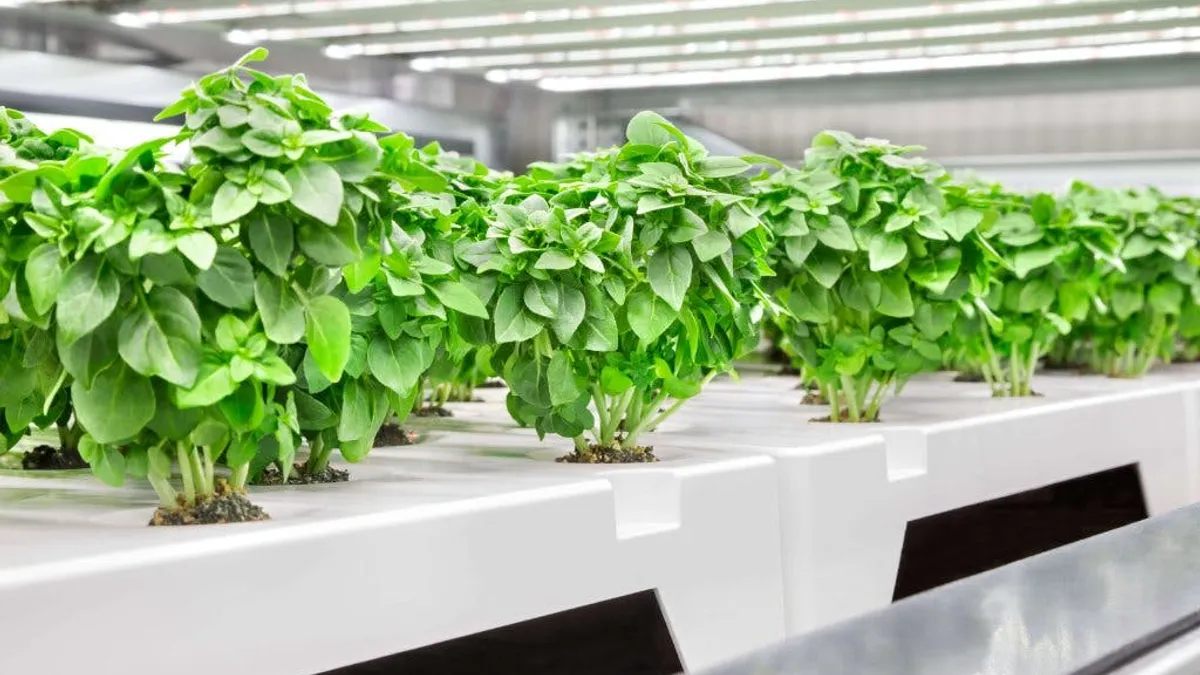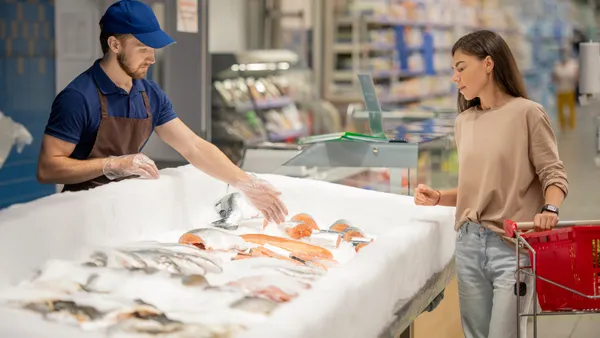Dive Brief:
- Indoor farming company Infarm has developed new modular distribution centers for growing and supplying leafy greens and other produce to grocers located in and around urban markets, according to a press release.
- Each “growing center” is comprised of dozens of units measuring between 32-feet and 59-feet high that use automation and cloud computing to monitor and grow plants. Construction of each center takes six weeks.
- Infarm plans to establish 100 Growing Centers globally by 2025. It currently has 15 centers announced or under construction in cities like Seattle, Vancouver, Toronto and London.
Dive Insight:
After placing high-tech grow units inside food retailers across Europe, North America and Japan, Infarm is now scaling up into facilities that can efficiently grow and widely distribute vertically grown produce.
The move combines dozens of the small, cloud-connected units that Infarm specializes in to create distribution facilities that can supply numerous stores, bringing it into closer competition with suppliers like AeroFarms, BrightFarms, Plenty and others that grow produce — mostly leafy greens — at scale. Retailers across the U.S. have signed on with these providers as they look to offer fresh, "locally grown" produce items year-round.
Infarm will likely aim to broaden its existing retailer relationships, which include big names like Amazon Fresh, Whole Foods Market and Kroger. Its modular units can fit in “any available space,” according to the news release, allowing growing centers to operate in small and unconventional spaces inside dense urban markets — albeit ones with high ceilings, given each unit measures at least 32 feet tall.
Germany-based Infarm made headlines in 2019 when it placed mini grow units inside two Seattle-area QFC stores. The high-tech mini farms supply greens like lettuce, kale and cilantro, offering hyper-local supply, as well as a touch of food theater for customers. Last year, Infarm placed farming units inside two Whole Foods stores in London.
Infarm announced $170 million in funding last fall, bringing its total funding to more than $300 million.
Vertical farming outfits have struggled for years to overcome high energy costs. Current operators insist that continuous innovation has improved business economics and made it possible to supply retailers at scale and offer prices that are competitive with conventionally grown produce. Infarm says its technology helps its units adjust conditions to grow better produce and also save energy.
“We've collected more than 300 billion data points throughout our farming network to date. These data enable us to perfect our growing recipes and improve yield, quality and nutritional value, while reducing the production price constantly,” Guy Galonska, Infarm’s co-founder and chief technology officer, said in a statement.
Albertsons has teamed up with Plenty to supply vertically farmed greens to more than 400 California stores, while last month, Giant Eagle expanded its supply from robotics-enabled startup Fifth Season. In October, vertical farming outfit Evergreen Farms took the top prize in Ahold Delhaize’s supply chain innovation competition.













